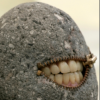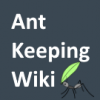- Formiculture.com
- Forums
- Gallery
- Members
- Member Map
- Chat

Breeding
Started By
Chomp231
, Jul 22 2017 8:52 AM
18 replies to this topic
#1
 Offline
-
Posted July 22 2017 - 8:52 AM
Offline
-
Posted July 22 2017 - 8:52 AM
I'm interested in selective breeding with ants there isn't a lot of info on how to go about getting this done I know how to selective breed dogs pigs cows chickens goats sheep ect.... just a little different then ants is there anything special do I just put them in a jar with water food and a screened top on my back porch? Any one any segestions?
#2
 Offline
-
Posted July 22 2017 - 9:40 AM
Offline
-
Posted July 22 2017 - 9:40 AM
I'm sorry to burst your bubble but breeding ants is almost impossible. Every species requires different conditions to start a mating flight and some only mate high up in the air. Additionally, colonies need to be at a very large size in order to start producing slates.
- LC3, Martialis, Evanthomas89 and 1 other like this
Visit us at www.canada-ant-colony.com !
#3
 Offline
-
Posted July 23 2017 - 7:24 AM
Offline
-
Posted July 23 2017 - 7:24 AM
I am willing to wait for a large colony the problem is what species I would need I live in new Hampshire so I'd need a colony that mates on ground and wouldn't fly as well as how much genetic diversity I would need (how many mother colonies that get "swapped out" ,not get rid of per say more like switch a baby colony to a parent every so often) I just need one species that conform to the following 1. Can mate on ground 2.does not require a flight to mate 3. Ants still leave nest like a budding ant species 4. An ant that lives in new Hampshire and Virginia so when I eventually move my research won't be wasted I can just start some new colonies where I move and jump forward a lot of trial and error
#4
 Offline
-
Posted July 23 2017 - 11:21 AM
Offline
-
Posted July 23 2017 - 11:21 AM
I am willing to wait for a large colony the problem is what species I would need I live in new Hampshire so I'd need a colony that mates on ground and wouldn't fly as well as how much genetic diversity I would need (how many mother colonies that get "swapped out" ,not get rid of per say more like switch a baby colony to a parent every so often) I just need one species that conform to the following 1. Can mate on ground 2.does not require a flight to mate 3. Ants still leave nest like a budding ant species 4. An ant that lives in new Hampshire and Virginia so when I eventually move my research won't be wasted I can just start some new colonies where I move and jump forward a lot of trial and error
All of this sounds impossible. Even a Myrmecologist wouldn't be able to do that.
- Cameron C. Thomas likes this
#5
 Offline
-
Posted July 23 2017 - 11:29 AM
Offline
-
Posted July 23 2017 - 11:29 AM
The closest ant that fits into your description is Myrmica rubra, but they are an invasive species and have not spread to Virginia. All other native species except a few in the genus Myrmica and Leptothorax (Which the species in both genus might consist of species complexes) will not mate in the nest and no native species bud as far as I'm aware. All of these ants still conform to nuptial flights so even if you were to breed them you'll only get a small time frame to do so. Also what are you trying to selectively breed? Colour, behaviour or morphological characteristics?
Edited by LC3, July 23 2017 - 11:32 AM.
#6
 Offline
-
Posted July 23 2017 - 11:40 AM
Offline
-
Posted July 23 2017 - 11:40 AM
You can't breed most of the ant species. However, with a few it is possible and has already been successfully done.
1. Inbreeding
Ant species which do inbreeding basically breed themselves. For example: Pheidole megacephala, Tetramorium bicarinatum, Monomorium pharaonis
2. Nuptial flight near ground
Some ant species don't fly far away from the nest during a nuptial flight. They only fly short distances or just move outside the nest and couple on the ground. Some of these species have already been bred by Myrmecologist for example Prof. Dr. Alfred Buschinger. Some Leptothorax and Temnothorax species do near ground nuptial flights.
3. Artificial insemination
Atta colombica was bred by artificial insemination.
Buschinger wrote in German ameisenwiki an article about breeding (maybe google translator will produce some understandable English ![]() ): http://ameisenwiki.d...hp/Ameisenzucht .
): http://ameisenwiki.d...hp/Ameisenzucht .
According to him the following species have been successfully bred:
- Anergates atratulus
- Atta colombica: artificial insemination
- Chalepoxenus brunneus
- Chalepoxenus kutteri
- Chalepoxenus muellerianus
- Formicoxenus nitidulus
- Harpagoxenus sublaevis
- Harpagoxenus canadensis
- Leptothorax kutteri
- Leptothorax pacis
- Leptothorax goesswaldi
- Leptothorax faberi
- Leptothorax pocahontas
- Myrmecina graminicola
- Myrmoxenus adlerzi
- Myrmoxenus algerianus
- Myrmoxenus bernardi
- Myrmoxenus birgitae
- Myrmoxenus corsicus
- Myrmoxenus kraussei
- Temnothorax minutissimus
- Tetramorium bicarinatum
- Wasmannia auropunctata
Losing their wings isn't a certain sign that a queen was copulated for ants in captivity. My Polyrhachis dives colony has sometimes more than 50 wingless queens but probably only one of them (the one I bought) was copulated. They act more like workers. Same with my Pheidole pallidula and Pheidole spathifera colony.
Edited by Barristan, July 23 2017 - 11:46 AM.
- Antsinmycloset likes this
#7
 Offline
-
Posted July 24 2017 - 3:12 AM
Offline
-
Posted July 24 2017 - 3:12 AM
I didn't think A.I. with ants was posible did you happen to read what he had to do to collect and fertilize them? And I think I have odorus house ant queens these guys if I'm not mistaken do budding right? And I'm not afraid of invasive species.... I'm trying to work on the size of the ant and the personality trait that gets passed down through parent to offspring through donestication
#8
 Offline
-
Posted July 24 2017 - 8:10 AM
Offline
-
Posted July 24 2017 - 8:10 AM
I didn't think A.I. with ants was posible did you happen to read what he had to do to collect and fertilize them? And I think I have odorus house ant queens these guys if I'm not mistaken do budding right? And I'm not afraid of invasive species.... I'm trying to work on the size of the ant and the personality trait that gets passed down through parent to offspring through donestication
Here is the paper: https://link.springe...0040-012-0273-3I haven't red it, so I don't know how it was done.
#9
 Offline
-
Posted July 24 2017 - 8:25 AM
Offline
-
Posted July 24 2017 - 8:25 AM
Try raising termites. They do not need to fly to mate.
Hawaiiant (Ben)
Keeper of
Miniature Labradoodle
Baby Wolf Spider
Mud Dauber wasp larvae
Ochetellus Glaber
Solenopsis Geminata
Brachymyrmex Obscurior
Cardiocondyla Emeryi
Tetramorium Bicarinatum
Plagiolepis Alluaudi
Anoplolepis Gracilipes
Technomyrmex Difficilis
Pheidole Megacephala
Aholehole fish
Cowrie snail
Sea Fan Worm
100+ sea squirts
Tree seedlings
Ghost Crab
Day Gecko
Small Fat Centipede
Endemic Lacewing larva
Vernal Pool shrimps
Keeper of
Miniature Labradoodle
Baby Wolf Spider
Mud Dauber wasp larvae
Ochetellus Glaber
Solenopsis Geminata
Brachymyrmex Obscurior
Cardiocondyla Emeryi
Tetramorium Bicarinatum
Plagiolepis Alluaudi
Anoplolepis Gracilipes
Technomyrmex Difficilis
Pheidole Megacephala
Aholehole fish
Cowrie snail
Sea Fan Worm
100+ sea squirts
Tree seedlings
Ghost Crab
Day Gecko
Small Fat Centipede
Endemic Lacewing larva
Vernal Pool shrimps
#10
 Offline
-
Posted July 24 2017 - 10:18 AM
Offline
-
Posted July 24 2017 - 10:18 AM
Black crazy ants would probably be your best bet, although I don't know if they live in NH.
#11
 Offline
-
Posted July 24 2017 - 2:41 PM
Offline
-
Posted July 24 2017 - 2:41 PM
They don't have bca up here I wish and figuring out how they pass on genetic matter would be a real treat because of the cloning, we know they most likely still have a efficient way of gene mutation otherwise they risk death as a species due to lack of adaptation but I haven't heard of any such development all I've heard is that they clone. As for species I've been told odorus house ants bud and I might have 2 queens of this species. Could someone inform me of the mating habits of this species, there isn't really one good site that tells you information I get little pieces from 50 different places I have to add together to have a blurry photo does someone know mating time for odorus, does it need flight, if so does it hat require a hight flight, any inetresting facts on this species mating or not?
#12
 Offline
-
Posted July 24 2017 - 5:06 PM
Offline
-
Posted July 24 2017 - 5:06 PM
They don't have bca up here I wish and figuring out how they pass on genetic matter would be a real treat because of the cloning, we know they most likely still have a efficient way of gene mutation otherwise they risk death as a species due to lack of adaptation but I haven't heard of any such development all I've heard is that they clone. As for species I've been told odorus house ants bud and I might have 2 queens of this species. Could someone inform me of the mating habits of this species, there isn't really one good site that tells you information I get little pieces from 50 different places I have to add together to have a blurry photo does someone know mating time for odorus, does it need flight, if so does it hat require a hight flight, any inetresting facts on this species mating or not?
Does not require a mating flight but they do fly in May-July. They usually just attract males from nearby nests. I believe they can inbreed but not clone. They do bud though
Visit us at www.canada-ant-colony.com !
#13
 Offline
-
Posted July 25 2017 - 4:00 AM
Offline
-
Posted July 25 2017 - 4:00 AM
These guys sound perfect thank you sirs and madamese now my friends gonna get me a capillary and we will wait and test out a.i. and natural breeding I just need to wait for my queens to get rolling more thank you for the info all now to find at least 23 more colonies to keep a semi decent genetic diversity
#14
 Offline
-
Posted July 26 2017 - 3:24 AM
Offline
-
Posted July 26 2017 - 3:24 AM
Make sure to keep us updated.
#15
 Offline
-
Posted July 26 2017 - 7:07 AM
Offline
-
Posted July 26 2017 - 7:07 AM
I am keeping a lab note book so don't worry I will my first queen of what I suspect to be odorus I will have them ided soon seems to be doing amazing even though she's been disterbed a little she's happy to just grab her eggs and hide em or sit there protecting them now be she knows I don't like duster bing her and she's happy with her new home I just made for her it's a 2 inch nesting box with a rock and 2 caps one for food one for water she seems to drink a lot I feel like this is a good sign and that she steals from the honey I provide for her do I need to give her protein yet or no? It's been almost 14 days since capture
#16
 Offline
-
Posted August 5 2017 - 11:12 AM
Offline
-
Posted August 5 2017 - 11:12 AM
Update: my 2 that might be odors are doing good they both started laying ones a darker red close to black and ones a lighter red (just started laying compared to the first) but they are both 5/16 inch and the black one has twist as many eggs as she had 2 or less weeks ago I made my own box for her and that will be a feed portal eventually while I have a nest box that once she starts hatching I'll give her to move into so I can use her feeding box they are very rugged ants for queens they don't mind me changing their food or looking at them ocationally they don't actually run around with their eggs when I open themy up they sit there and protect them and know nothings gonna happen quite different from the big queens I have
#17
 Offline
-
Posted August 5 2017 - 3:05 PM
Offline
-
Posted August 5 2017 - 3:05 PM
This is ant related, why is this posted off topic? Please move to: http://www.formicult...orum/5-general/
> Ant Keeping Wiki is back up! Currently being migrated from old wiki.  Looking to adopt out: Crematogaster sp. (Acrobat Ants) colonies
Looking to adopt out: Crematogaster sp. (Acrobat Ants) colonies
#18
 Offline
-
Posted August 6 2017 - 4:08 AM
Offline
-
Posted August 6 2017 - 4:08 AM
How do I move a thread?
#19
 Offline
-
Posted August 7 2017 - 10:18 AM
Offline
-
Posted August 7 2017 - 10:18 AM
How do I move a thread?
Only forum moderators and admins can.
> Ant Keeping Wiki is back up! Currently being migrated from old wiki.  Looking to adopt out: Crematogaster sp. (Acrobat Ants) colonies
Looking to adopt out: Crematogaster sp. (Acrobat Ants) colonies
0 user(s) are reading this topic
0 members, 0 guests, 0 anonymous users




















